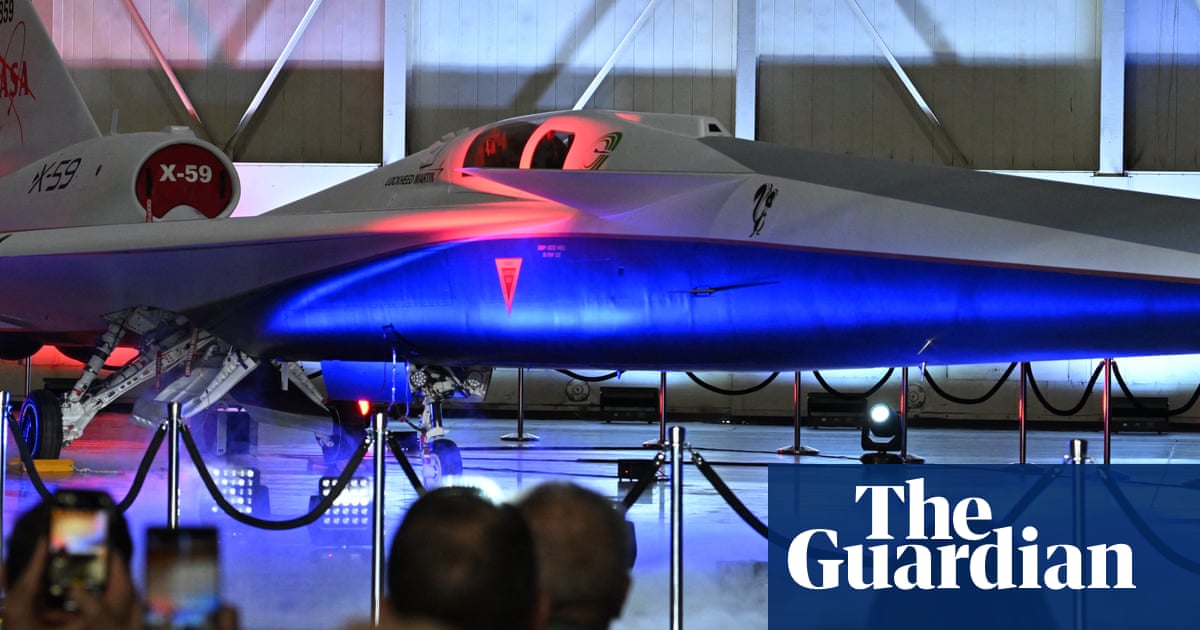In launch event on Friday, agency shared plans to test over US cities to see if it’s quiet enough by engaging ‘the people below’
Nasa has unveiled a one-of-a-kind quiet supersonic aircraft as part of the US space agency’s mission to make commercial supersonic flight possible.
In a joint ceremony with Lockheed Martin Skunk Works in Palmdale, California, on Friday, Nasa revealed the X-59, an experimental aircraft that is expected to fly at 1.4 times the speed of sound – or 925mph (1,488 km/h).
The aircraft, which stands at 99.7ft (30.4 metres) long and 29.5ft wide, has a thin, tapered nose that comprises nearly a third of the aircraft’s full length – a feature designed to disperse shock waves that would typically surround supersonic aircraft and result in sonic booms.



Yeah but it doesn’t usually research how to make commercials transportation way less fuel efficient.
“The New York Times looked at the same comparison in the late 1970s when rising fuel prices were causing major difficulties for Concorde. It concluded that Concorde used four times the amount of fuel of the 747, based on a New York to Paris flight. These comparisons are even worse when looking on a per passenger basis – Concorde, of course, only took 100 passengers, compared to well over 400 on the 747-400.” source
Planes are already a bad source of pollution, this makes it 8 times worse. Awful.
It’s researching how to make “any” supersonic vehicle quieter… You know NASA does have a whole fleet of supersonic vehicles, but they can’t operate them anywhere over land in the US. It’s literally illegal to fly a supersonic vehicle over populated areas (most of the US).
You act like this technology is only applicable to commercial passenger liners, but it’s literally all supersonic aircraft.
“Nasa unveils quiet supersonic aircraft in effort to revive commercial flights”
Title of the article and this post.
Ohh, does the headline changes all the facts in my statement?
These are advances in physics. Understanding the sound created by sonic booms is really understanding the nature of airflow and shockwaves in the supersonic regime. This is critical scientific development for NASA this could lead to more efficient rockets, and space planes as well as more efficient engines.
Did you know that the F1 engine that powered the Saturn V suffered from 1 major problem? Combustion instability, due to acoustic disturbances in the combustion chamber. Because of this they had to turn shut down at least 1 engine early in every launch. Understanding supersonic shockwaves is exactly the kind of thing that could have solved that problem.
A headline changes nothing.